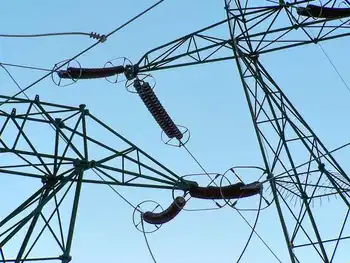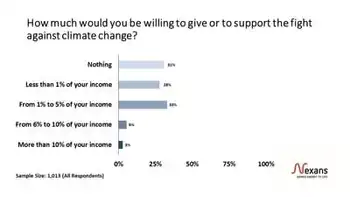Deregulation spawns energy conglomerates
RALEIGH, NORTH CAROLINA - In the utility industry, Progress Energy is becoming an endangered species.
Deregulation and mergers have so transformed the industry that by and large, utilities are no longer the safe, predictable - and boring - investments they once were.
Deregulation introduces competition among utilities - either competition for customers or for deals from electricity suppliers. Mergers are creating energy conglomerates that span multistate regions, and expand into natural-gas production and other ventures, leaving the regulated business as an increasingly smaller portion of revenue. Both increase the stock's potential return and risk of volatility.
Progress has resisted those trends. The company is sticking to a fundamental business strategy that has worked for a century: making and selling electricity.
The announcement of the $11 billion acquisition of Constellation Energy Group by the parent of Florida Power & Light leaves one fewer investing option for those looking for the safe stock-market bet that utilities once represented.
"FPL will fall into another investor profile - no question about that," said Progress Energy's chief executive, Robert McGehee. "The people who are holding them fill a particular investment niche."
Those investors could migrate to Progress, Southern Company or a handful of others that remain unchanged, McGehee said.
"Over the long term, it could have some benefit" for Progress Energy, McGehee said.
In a noncompetitive environment, what competition existed between regulated utilities was primarily for the heart and mind of the investor.
"When we talk to people who hold our stock, we're competing primarily with Southern Company and FPL for their money," McGehee said.
The FPL and Constellation deal will create one of the nation's largest power producers. It is the first announced acquisition since Congress repealed a 1935 law limiting utility mergers. The repeal of the antitrust law only accelerates a trend that was well under way. In two other recent megadeals, Duke Energy in Charlotte is buying Cincinnati-based Cinergy for $9 billion, and Exelon is acquiring New Jersey's Public Service Enterprise Group for $16 billion.
About 80 percent of Progress' revenues come from the regulated business. For the new Constellation Energy Group, the regulated business will represent less than half the company's sales.
The upheaval in the utility sector has taken place in the past 15 years. Half the nation is served by restructured utilities, making regulated utilities such as Progress look like relics of the stock market. Progress has strong customer growth, pays an annual dividend of $2.42 per share and serves a state untouched by deregulation.
"They are kind of unique," said Caren Byrd, executive director of Morgan Stanley's Investment Banking Division. "There are not a lot of places to go for yield."
Related News

BC Hydro launches program to help coronavirus-affected customers with their bills
VANCOUVER - BC Hydro is implementing a program to help people pay their bills if they’re affected by the novel coronavirus.
The Crown corporation says British Columbians are facing a variety of financial pressures related to the COVID-19 pandemic, as some workplaces close or reduce staffing levels.
BC Hydro said it also expects increased power usage as more people stay home amid health officials’ requests that people take social distancing measures.
Under the new program, customers will be able to defer bill payments or arrange a payment plan with no penalty.
BC Hydro says some customers could also be eligible…




